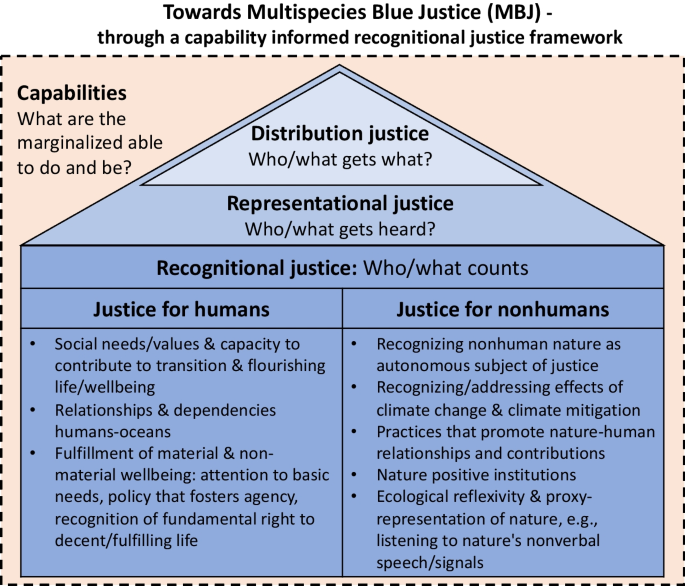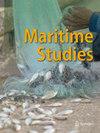多物种蓝色正义与能源转型冲突:审视低碳能源与人类和非人类自然正义之间协同作用的挑战和可能性
IF 2.3
Q3 ENVIRONMENTAL STUDIES
引用次数: 1
摘要
摘要:本文深入探讨了海上风能(OWE)开发与人类和非人类正义之间的地方冲突和协同潜力方面的可持续性过渡紧张关系和途径。具体而言,我们构建了一个基于能力和认知的多物种蓝色正义框架,该框架既以生态反身性为中心(即提高环境意识、自然的代理代表、对自然权利和人与自然关系的制度承认和保护),又以人类为中心的正义框架为中心,并揭示了气候和能源转型可能产生或强化的人类和非人类的不公正。然后,该框架为可持续性过渡冲突的分析提供了信息,特别是爱沙尼亚Hiiumaa岛上长期存在的OWE冲突。这一分析揭示了由自然界的代理代表(即基层行动者和环境管理者)提出的人类和非人类的正义问题、所涉及的知识争论以及迄今为止采取的解决措施。接下来,我们将讨论欠债冲突可能带来的变革作用,包括最高法院裁定欠债计划无效如何促进了反思性规划,并可能树立了一个法律先例,可能对未来规划案件的处理产生人类和非人类的正义影响。然后,我们强调了社会和生态响应型OWE部署的剩余挑战。其中包括司法不承认自然权利、环境价值和社会文化与自然的联系是值得保护的权利,以及欧盟加速和扩大可再生能源的雄心正式化可能对当地产生的影响。其中包括环境管理者和海洋捍卫者引导对自然有利、以人为本的能源转型的前景。最后,我们提出了加强多物种正义的条件,包括如何利用正式干预(如法律)和非正式实践(如谈判、提高认识)来解除生产性冲突,并使能源转型与正义规范、人类和非人类保持一致。本文章由计算机程序翻译,如有差异,请以英文原文为准。

Multispecies blue justice and energy transition conflict: examining challenges and possibilities for synergy between low-carbon energy and justice for humans and nonhuman nature
Abstract This paper explores deep insights into sustainability transition tensions and pathways in terms of place-based conflict and potential for synergies between offshore wind energy (OWE) development and justice for humans and nonhuman nature. Specifically, we build a capability and recognition-based multispecies blue justice framework that at once centers ecological reflexivity (i.e., environmental awareness-raising, proxy representation of nature, and institutional recognition and protection of rights of nature and human-nature relationality), decenters anthropocentric frames of justice, and sheds light on injustices, human and nonhuman that climate and energy transitions may create or reinforce. This framework then informs analysis of a sustainability transition conflict, specifically a longstanding OWE conflict on Hiiumaa island, Estonia. This analysis unravels justice concerns, human and nonhuman, raised by proxy representatives of nature (i.e., grassroots actors and environmental stewards), the knowledge contestations involved, and the resolution measures undertaken thus far. Next, we discuss the possible transformative role of the OWE conflict, including how a Supreme Court ruling invalidating the OWE plan has fostered reflexive planning and may have set a legal precedent that may have human and nonhuman justice implications for the handling of future planning cases. We then highlight remaining challenges for socially and ecologically responsive OWE deployment. These include the judicial non-recognition of nature’s right as well as environmental values and sociocultural ties to nature as rights worth protecting, and the likely effects that formalization of European Union ambitions to speed-up and ramp-up renewable energy could have locally. These include prospects for environmental stewards and ocean defenders to steer nature-positive, people-centered energy transitions. Last, we propose conditions for enhanced multispecies justice, including how formal interventions (e.g., law) and informal practices (e.g., negotiation, awareness-raising) can be harnessed to unlock productive conflict and align energy transitions with the norms of justice, human and nonhuman.
求助全文
通过发布文献求助,成功后即可免费获取论文全文。
去求助
来源期刊

Maritime Studies
ENVIRONMENTAL STUDIES-
CiteScore
4.90
自引率
11.80%
发文量
37
期刊介绍:
Maritime Studies is an international peer-reviewed journal on the social dimensions of coastal and marine issues throughout the world. The journal is a venue for theoretical and empirical research relevant to a wide range of academic social science disciplines, including anthropology, sociology, geography, history and political science. Space is especially given to develop academic concepts and debate. We invite original research papers, reviews and viewpoints and welcome proposals for special issues that make a distinctive contribution to contemporary discussion around maritime and coastal use, development and governance. The journal provides a rigorous but constructive review process and rapid publication, and is accessible to new researchers, including postgraduate students and early career academics.
 求助内容:
求助内容: 应助结果提醒方式:
应助结果提醒方式:


